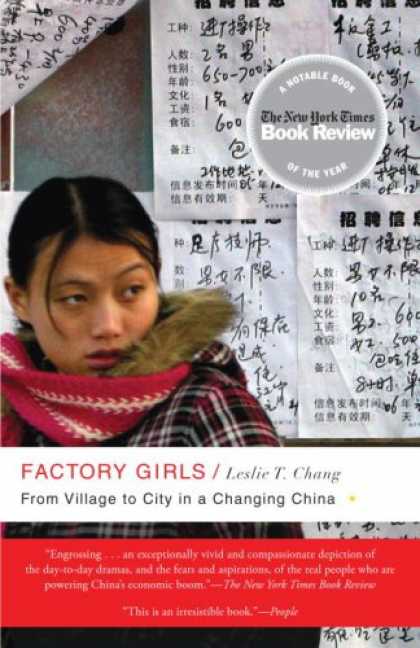
Factory Girls
From Village to City in a Changing China
- اطلاعات
- نقد و بررسی
- دیدگاه کاربران
نقد و بررسی

Starred review from August 25, 2008
Chang, a former Beijing correspondent for the Wall Street Journal
, explores the urban realities and rural roots of a community, until now, as unacknowledged as it is massive—China’s 130 million workers whose exodus from villages to factory and city life is the largest migration in history. Chang spent three years following the successes, hardships and heartbreaks of two teenage girls, Min and Chunming, migrants working the assembly lines in Dongguan, one of the new factory cities that have sprung up all over China. The author’s incorporation of their diaries, e-mails and text messages into the narrative allows the girls—with their incredible ambition and youth—to emerge powerfully upon the page. Dongguan city is itself a character, with talent markets where migrants talk their way into their next big break, a lively if not always romantic online dating community and a computerized English language school where students shave their heads like monks to show commitment to their studies. A first generation Chinese-American, Chang uses details of her own family’s immigration to provide a vivid personal framework for her contemporary observations. A gifted storyteller, Chang plumbs these private narratives to craft a work of universal relevance.

October 1, 2008
To American girls, the term going out means dating; to their Chinese counterparts, however, it means leaving their remote villages and migrating hundreds of miles to industrial cities to find work within the closed societies of assembly-line factories. Of Chinese ancestry herself, Wall Street Journal reporter Chang was allowed nearly unprecedented access to the sweatshops where the majority of the worlds consumer goods are produced. Following several young women as they move from job to job, Chang reveals a world of naked ambition and abject loneliness, of grueling hours and spartan living conditions, of moral compromise and ethical ambiguity. In spite of such harsh conditions, however, these young women prefer the freedom factory life provides, and fail to return to their villages to fulfill their traditional roles as wives and mothers. Making it nearly impossible to blithely use a mobile phone or strap on a pair of running shoes ever again, Changs portrait underscores the reality that the global economy rests on some very slender shoulders.(Reprinted with permission of Booklist, copyright 2008, American Library Association.)




دیدگاه کاربران